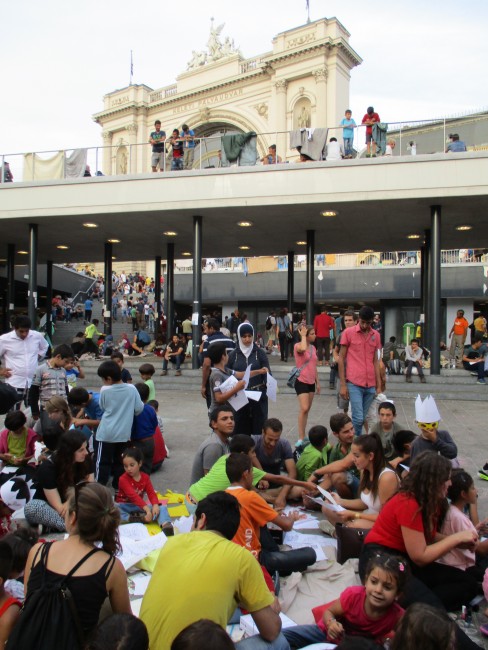In recent weeks, Hungary has again made international headlines. This time, it was a popular movement born out of resistance to the latest rewriting of the labor code—which the ruling Fidesz party had already modified in 2011 to the benefit of employers—that made the news. On 12 December, amid chaotic scenes in the National Assembly (where opposition MPs sought to obstruct the voting procedure), Fidesz passed a law that raises the maximum amount of overtime employees can work from 250 to 400 hours a year, and gives employers the freedom to delay payment for overtime work by up to three years. A similar amendment had already been proposed last year but was quickly withdrawn after the government realized the unpopular measure could dent Fidesz’s popularity in the run-up to this spring’s parliamentary election. Off-the-cuff comments made by Fidesz representatives have revealed that the law was reintroduced to satisfy German carmakers who are facing an increasingly acute labor shortage in a low-wage economy that a sizeable segment of the labor force has left behind to take up better-paid work in Austria, Germany, and other Western European countries.
Tag Archives: Hungary
Chris Hann: Hayek versus Polanyi in Montréal: Global society as markets, all the way across?
The workshop “Geographies of Markets”—hosted over three days in mid-June 2017 by the Karl Polanyi Institute of Political Economy at Concordia University, Montréal—gave scholars from a wide range of countries and disciplines an opportunity to assess the continued relevance of the Polanyian critique of “market society.” Even if this critique lacks the formal rigor of neoclassical economics, even if Polanyi’s concept of market exchange fails to capture the institutional intricacies of contemporary markets, and even if the man himself was very much a European intellectual of his age, his approach still appears to provide the best scientific foundation on which to build global political and normative alternatives to neoliberal hegemony. Today, however, his geographic binary between East and West, like his ideal types of redistribution and market exchange, all need careful reappraisal.
Prem Kumar Rajaram: Beyond crisis: Rethinking the population movements at Europe’s border
This post is part of a series on migration and the refugee crisis moderated and edited by Prem Kumar Rajaram (Central European University).
Crisis
The refugee crisis in Europe is fabricated. Like most “crises,” the recent onset of people from Syria, Iraq, Afghanistan, Bangladesh, and Pakistan trying to cross into the European Union is a representation. Anxiety and specific readings of law and humanitarianism frame this issue. This framing works inward as well as outward. Inward, it establishes a dominant regulating norm—an idea of “the refugee”—that allows for internal comparison and inequalities (people are said to have varying rights to protection). Outward, the framing helps create an understanding of a complex situation—an abstracted understanding—and allows for policy makers and commentators to treat “the refugee crisis” as an exceptional condition. As exception, that crisis appears to be regarded and treated as an “event” distinct from the political “norm,” and it enables a vertical form of politics. The crisis is the state acting as it tends to, as a protection racket in Charles Tilly’s memorable take, defining a danger or threat that strengthens its force and its hold over territory.
Continue reading
Chris Hann: The new Völkerwanderungen: Hungary and Germany, Europe and Eurasia
I spent the last weeks of August and the first days of September in Hungary, close to the European Union’s border with Serbia. Never before had a routine field trip catapulted me into an engagement with issues dominating daily headlines, both in Hungary and elsewhere. What light can social anthropology throw on the current “migrant crisis”?
Continue reading
